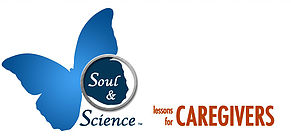WEB MATERIALS

Web Articles
Ira Byock, “The Meaning and Value of Death” Journal of Palliative Medicine. Volume 5, Number 2, 2002
Paula K. Baldwin, “Death Cafés: Death Doulas and Family Communication“ Behav. Sci. 2017, 7, 26; doi:10.3390/bs7020026
Ira Byock “Transforming the Way We Die” The Atlantic. March 8, 2012
Deena Prichep “Death Cafes Breathe Life Into Conversations About Dying” NPR, March 8, 2013 5:59 PM ET
Karen M. Wyatt, M.D., “How to Have Everyday Conversations About Death and Dying.” Huffington Post 02/10/2016
John Troyer, “Death Isn’t Taboo, We’re Just Not Encouraged to Talk About It” The Conversation. April 10, 2014
Lesley McClurg “Let’s Talk About Death Over Dinner” NPR May 7, 20157:19 PM ET
Camilla Zimmermann and Gary Rodin, “The Denial of Death Thesis: Sociological Critique and Implications for Palliative Care” Palliative Medicine 2004; 18: 121¡/128 (for purchase)
Miles, L.; Corr, C.A. “Death Café.” OMEGA J. Death Dying 2015. Available online: http://journals.sagepub. com/doi/abs/10.1177/0030222815612602 (for purchase)
Phillips, Jane, “What Will it Take to Put Talking about Death on our Agenda?” Collegian, Dec. 2013. Volume 20 , Issue 4 , 205 – 206
Websites
Pallimed
About Pallimed (from website description):
Pallimed was founded on June 8th, 2005 by Drew Rosielle, MD as a way to keep track of interesting articles from many different journals that were relevant to palliative care. The scope of the blog has expanded to include reviewing media coverage of hospice and palliative care issues.
The contributors to Pallimed are mostly physicians, but we also have a nurse practioner and a PhD on staff. Speaking of staff, Pallimed is an all volunteer effort. No grant money, no organizational support, no advertisements. We do this is our spare time for the love of the field.
Our primary audience are the interdisciplinary health care professionals in hospice and palliative care, but we are happy to see patients, families, media, other disciplines and specialties come here to find information relevant to them.
Death Cafe
At a Death Cafe people, often strangers, gather to eat cake, drink tea and discuss death.
Our objective is ‘to increase awareness of death with a view to helping people make the most of their (finite) lives’.
A Death Cafe is a group directed discussion of death with no agenda, objectives or themes. It is a discussion group rather than a grief support or counselling session.
– See more at: http://deathcafe.com/what/#sthash.bXAnurFJ.dpuf
Death Over Dinner
The Death over Dinner series was started by Michael Hebb, a former architect and teaching fellow at the University of Washington, with a goal to gather diverse groups of people to have meaningful conversations about end-of-life.
Dying Matters
The Coalition’s Mission is to help people talk more openly about dying, death and bereavement, and to make plans for the end of life. This will involve a fundamental change in society in which dying, death and bereavement will be seen and accepted as the natural part of everybody’s life cycle. Changes in the way society views dying and death have impacted on the experience of people who are dying and bereaved. Our lack of openness has affected the quality and range of support and care services available to patients and families. It has also affected our ability to die where or how we would wish.
The Dying Matters Coalition is working to address this by encouraging people to talk about their wishes towards the end of their lives, including where they want to die and their funeral plans with friends, family and loved ones.
This website will help you start those conversations.
Go Wish Game
Go Wish gives you an easy, even entertaining way to talk about what is most important to you. The cards help you find words to talk about what is important if you were to be living a life that may be shortened by serious illness. Playing the game with your relatives or best friends can help you learn how you can best comfort your loved ones when they need you most.
Candy Chang Website
Through the activation of public spaces around the world, artist Candy Chang creates work that examines the dynamics between society and the psyche, the threshold between isolation and community, and the role of the commons in contemporary wellbeing. She is interested in the relationship between public space and mental health, the tension between individual liberty and social cohesion, and a city that exposes and fosters the complexity of the individual and collective psyche.
Ernest Becker Foundation
Established in 1993, the Ernest Becker Foundation advances understanding of how the unconscious denial of mortality profoundly influences human behavior. Ernest Becker laid the foundation for this work in his Pulitzer Prize-winning book The Denial of Death.
